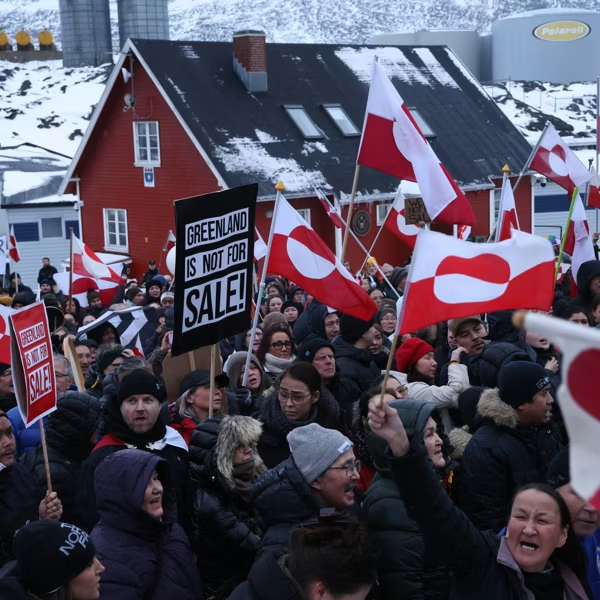Some are fascinated with her: they see her as a hero, as a Joan of Arc of modern times or as a Mafalda, with a political agenda to preserve planet Earth and as such, represents the younger generations as more intelligent than that of their parents. Others are angry: they see her as a naive puppet of opaque adult interests and they make fun of her.
Young ecologist, Greta Thunberg became a new global figure and depending on the political point of view of observers, she is either defended or hated. On September 20, 2019 the #FridaysforFuture movement, inspired and encouraged by the Swedish teenager, celebrated its largest mass mobilisation. In almost every country in the world, young people and adults took to the streets. It is estimated that about 4 million people mobilised around the world.
Greta Thunberg, a 16-year-old student, has been known in Europe for around a year, but in the United States she has risen to fame over the past month. Many Americans first saw her when she appeared on the Trevor Noah Daily Show. There, she explained with her well know seriousness that the world has very little time left, precisely eight and a half years, because as of January 1, 2018, only 420 gigatons of carbon dioxide remained. Now there are only 360 gigatons left, and in eight and a half years this will run out if the current levels of emissions are maintained.
Despite her youth, Great Thunberg has become popular because of her knowledge of climate and environmental problems, for the firmness of her convictions and for the actions that she carries out. Commentators are sure that that is why she has become an icon.
The climate activist does not relate well to the irony of American television programs. When asked for her impression of New York when she arrived on the Malizia yacht, she replied that it smelled bad. Her lack of understanding of irony and her seriousness are probably related to her Asperger's syndrome (a condition she speaks openly about) and dose of Nordic frankness. All of these qualities have influenced the new environmental movement. It is a group that speaks very seriously and uses scientific research to support their arguments. It is, in fact, the antithesis of the ironic language used by generation X or millennials.
Greta Thunberg is the global face of this movement and her presence is extremely influential. In August 2019, when embarking on a trip from Europe to New York on a ship that doesn't produce carbon dioxide, she caused rage in the media and in the political world. Furthermore, her interventions at the World Climate Conference in Katowice (Poland) in December 2018 and at the World Economic Forum in Davos put the world's powerful in a very awkward position. This young girl, with her hair in braids threw slogans at them ("act" or "panic") and was able to attract the world's attention. Especially the European media. But her presence at the New York and Washington demonstrations, the meeting with Barack Obama, the appearance on the Daily Show and the speech before the General Assembly of the United Nations on September 23rd also made her a popular figure in the US.
The mass movement led by Great Thunberg dates back to the "school strike" that began on 20th August 2018. That day, instead of attending school, she sat in front of the Swedish Parliament in an attempt to draw attention to the dangers climate change represents for future generations. Her intervention produced an avalanche effect. In a few months a mass movement known as #FridaysforFuture emerged, reaching its first peak in March 2019 when 1.5 million teenagers and youngsters took to the streets to protest and demand a change in attitude to climate change. The movement is global, but its centre is in the Global North. And although in many countries the movement is led by teenage women, in no other country in the world is the symbiosis between the movement and a person is as clear as in the case of Greta Thunberg.
The activist triggered not only a political movement, but also fury from powerful media outlets. The media and commentators have become obsessed with her. According to some observers, the adoration towards Greta Thunberg is similar to a religious awakening. But this is not her problem. It is, on the contrary, a problem of the people and the media that react to her actions and her words. Within the political spectrum, environmentalism is found mostly on the left and in the academic world. The right and many liberals deny Greta Thunberg and her colleagues the right to formulate their own political ideas and goals, instead treating them as immature and spoilt. The Argentine journalist Sandra Russo calls this the first case of "global bullying", an idea which she discussed long before September 23rd when Donald Trump, the president of the United States, sent out a tweet which made fun of the 16 year old.
The criticism that Greta Thunberg's ideas about the climate would be potentially "undemocratic" since they do not allow for political compromise are based on the idea that politics works "only step by step, always through compromise". However, this can be seen as a form of soft paternalism. Greta Thunberg's sharp accusations do not take place in a vacuum, they are stark, political interventions aimed at polarizing public opinion. Her statement that "the poverty of the many pays for the luxury of the few", is according to some commentators on the extreme right, is "the product of socialisation in the Swedish education system" and is a stupid left wing criticism of capitalism.
Other critics argue that fanatical ecologists (or green capitalists) are hiding behind the young Swedish girl. More specifically, We Don't Have Time AB, a Swedish company that works on environmental projects founded in 2017, by public relations specialist Ingmar Rentzhog, who gave wide coverage to the school strikes led by Great Thunberg in 2018. On November 27 of that year, We Don't Have Time AB announced they were issuing securities on the stock exchange and mentioned her name 11 times in their advertising brochure. Earlier this year, she alongside her family said that they are no longer are in contact with the firm. Others point to the ever-present George Soros, the ghost of the global alternative right.
Everything seems to suggest that the more popular and disruptive the climate movement become, the more virulent the rejection from those who consider climate change as a conspiracy and the protection of the climate as pure nonsense becomes. The severity of reactions to a 16 year old teenager should make us reflect. Some psychologists try to explain it by saying the 'old' white men won't change their attitudes towards the environment, so instead attack Greta for her illness, for her age or because of the apparent manipulation of her activism. But behind these criticisms there is much more than the intransigence of a whole male generation. The attacks may be a sign that she, alongside the youth involved in the movement, have managed to hit a sensitive nerve. Is Greta Thunberg questioning the system?
At the climate conference held in Katowice in December 2018, the young Swedish woman stressed that political elites had not yet understood the severity of the climate crisis. Since the political class acts irresponsibly, it is up to the younger generations to take charge of their future and do what adult politics should have done a long time ago. Young people must understand what previous generations have done with climate change and respond to the chaos that have inherited. They need to ensure that their voices are heard.
In all of her speeches, Greta Thunberg makes it clear that if real and concrete measures are not taken to face the current situation, politicians will be acting irresponsibly. She maintains that rich nations have a greater obligation to reduce emissions quicker and that countries like Sweden should reduce their fossil fuel emissions by 15% annually and reduce their emissions to zero within six to twelve years. This would allow emerging economies such as India and Nigeria sufficient time to adapt their infrastructure.
The main concern of the #FridaysforFuture movement is, therefore, that climate protection measures be adapted in the widest, fastest and most efficient way possible. In order to achieve the objective of limiting temperature rise to 1.5 degrees Celsius, a limit established at the United Nations Conference on Climate Change that was held in Paris in 2015 (COP 21) and adopted by the UN. These positions do not seem to question the system itself; they are simply a call to reason and for fulfilment of objectives that have already been established.
The power of persuasion of the movement doesn't come from theoretical positions (as in 1968), but from simply saying "what is happening". It comes from insisting on the fact that, as the reports by the Intergovernmental Panel on Climate Change (IPCC) say, the climate crisis has worsened in last 20 years and, despite this, politics is doing very little to change its course. German climate movement activist Luisa Neubauer comments that "the battlefield is between those who benefit most from the status quo and those who are set to lose the most." And she adds: "We young people ask ourselves why things are the way they are when they could so simply be different? And we have to fight this as strongly as we can because we have absolutely nothing to lose, except our future".
Greta has also begun to be recognised in Latin America. The urgency of social and economic crises in many countries in the region forces the environmental issues to take a back seat.
In the movement, which is symbolized by Greta, there is potential for generational conflict: voters of the future are mobilizing against the interests of those of the present. But they are not alone and many adults are willing to change their behaviour and seek a change in policy, demonstrated by the large participation of adults in the demonstrations of September 20th.
Greta has managed to create mass mobilisation through her statements, actions in the public eye and intervention in the media. Its objective is not and cannot be to solve the climate crisis, but it has won a more immediate resounding political success: a generalised and global awareness of the urgency of climate change. What she says and what she does already influences political debates in different countries and first steps, although still tentative are being taken in the right direction. Without mobilisation, this would not be happening.
The European Green Party is one of the main beneficiaries of advertising the strikes and protests of the climate movement. In Germany, the Greens obtained 20.5% of the votes in the 2019 European elections with 33% of the votes of those under 30. The electoral behaviour of young people is not just an expression of their sympathy for the environmental cause; it is also a reflection of the deep crisis that German social democracy is going through. Many people see the same worries in both the #FridaysforFuture movement and the Greens, highlighting how far the party is from the radicalism expressed by its founders.
The fact that in the party congress of the Greens, their politicians applaud the critical position of the younger generation (which strongly rejects the decisions of the adult generation) could be seen as flattery and hopefully, will not subvert representative democracy.
Greta Thunberg and the new climate movement has created a new political actor. They will need a lot of patience to continue the campaign. The fascination with the novelty and personal magnetism will diminish and interest will weaken, as will the wave of sympathy. Traditional media and social media do not stick to the same story for long. Greta Thunberg will return to school. Her generation has a lifetime ahead, though this movement should become an example of democratic commitment. Hopefully most young people will say no to fatalism and resignation. There will come a point when we become aware that environmental issues cannot be resolved if we separate them from economic and social issues. They are inextricably linked and part of the same problem.
Greta has also begun to be recognised in Latin America. The urgency of social and economic crises in many countries in the region forces the environmental issues to take a back seat. The Swedish teenager announced in December 2019 she will travel from the United States to Chile for COP 25. We still don't know how she will make the trip without producing polluting emissions. The trip is further than her trip from Europe to New York and there are no train lines that connect to two areas. This, for now, remains unclear. Regardless, it is assumed that this new challenge will bring Greta closer to the enormous social problems of Latin America. The trip to Chile will open her eyes to a different reality, very different from the ones she knows, a reality that hopefully helps her to see more clearly the extent to which environmental and economic issues are two sides of the same coin. In New York, at the headquarters of the United Nations, she has already taken steps in this direction when she exclaimed with a trembling voice to the heads of states of the world:
"How dare you! [...] We are at the beginning of a mass extinction and all you can talk about is money and fairy tales of eternal economic growth. How dare you!"




